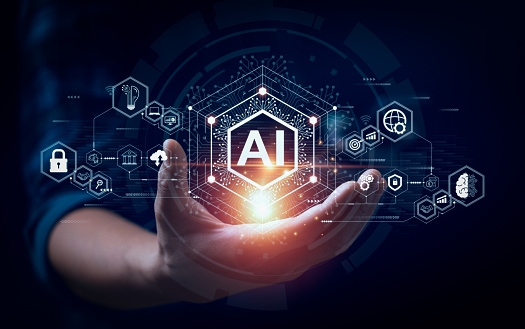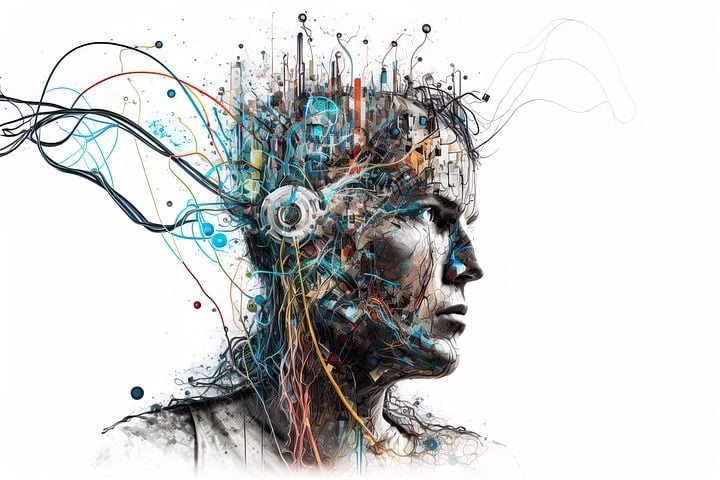Artificial intelligence
Artificial Intelligence (AI) refers to the simulation of human intelligence in machines that are programmed to think and learn like humans. AI allows machines to perform tasks that typically require human intelligence, such as visual perception, speech recognition, decision-making, and language translation.
There are different types of AI, including:
Narrow AI: Also known as weak or specific AI, narrow AI is designed to perform a specific task, such as virtual personal assistants like Siri or Alexa, recommendation algorithms used by streaming services, or autonomous vehicles.
General AI: Also known as strong or human-like AI, general AI has the ability to understand, learn, and apply intelligence to a wide range of tasks, just like humans. However, true general AI that can replicate human-level intelligence is still largely theoretical and has not been achieved.
Machine Learning: Machine learning is a subset of AI that involves training machines to learn from data without being explicitly programmed. Machine learning algorithms are used to recognize patterns in data, make predictions, and make decisions based on the patterns they identify.
Deep Learning: Deep learning is a subset of machine learning that involves training artificial neural networks with multiple layers to perform tasks such as image and speech recognition. Deep learning has been particularly successful in areas such as computer vision and natural language processing.
AI has numerous applications across various fields, including healthcare, finance, transportation, agriculture, and entertainment. It has the potential to revolutionize industries and transform the way we live and work. However, it also raises ethical concerns, such as bias in AI algorithms, privacy and security issues, and the impact on the job market and society as a whole. Responsible and ethical development and use of AI are critical to harness its potential for the benefit of humanity.
Certainly! Here are some additional aspects related to artificial intelligence:
Robotics: AI is often combined with robotics to create intelligent machines that can perform physical tasks. Robotic applications of AI range from autonomous drones and self-driving cars to robotic arms used in manufacturing and surgery.
Natural Language Processing (NLP): NLP is a field of AI that focuses on enabling machines to understand, interpret, and generate human language. NLP is used in applications such as speech recognition, machine translation, sentiment analysis, and virtual assistants.
Computer Vision: Computer vision is a subfield of AI that involves teaching machines to interpret visual information from the world, such as images and videos. Computer vision is used in areas such as facial recognition, object detection, and autonomous vehicles.
Ethics in AI: As AI becomes more prevalent, ethical considerations become crucial. Ethical concerns in AI include bias in AI algorithms, transparency and explainability of AI decision-making, accountability, and the impact of AI on privacy, security, and human rights. Ensuring that AI is developed and used responsibly, transparently, and with accountability is essential.
AI in Healthcare: AI is transforming the healthcare industry, with applications such as medical diagnosis, drug discovery, personalized treatment plans, and telemedicine. AI has the potential to improve patient outcomes, reduce costs, and enhance healthcare delivery.
AI in Business: Many businesses are incorporating AI into their operations to streamline processes, automate tasks, and gain insights from data. AI is used in areas such as customer service, supply chain management, fraud detection, and predictive analytics to enhance decision-making and improve efficiency.
AI and Society: The widespread adoption of AI has societal implications, including changes in the job market, workforce retraining, and the impact on economic, social, and cultural aspects of society. Addressing the social impact of AI, including issues related to equity, fairness, and inclusivity, is crucial in shaping the future of AI-powered societies.
AI Governance: The development of policies, regulations, and frameworks to govern the responsible use of AI is becoming increasingly important. Governments, organizations, and researchers are working on establishing guidelines and standards for the development, deployment, and use of AI to ensure that it is used in a manner that aligns with societal values and safeguards against potential risks.
Artificial intelligence is a rapidly evolving field with the potential to revolutionize many aspects of our lives. While it presents opportunities for innovation and advancement, addressing ethical, societal, and governance aspects of AI is critical to harness its benefits and ensure that it is used in a responsible and beneficial manner.



















